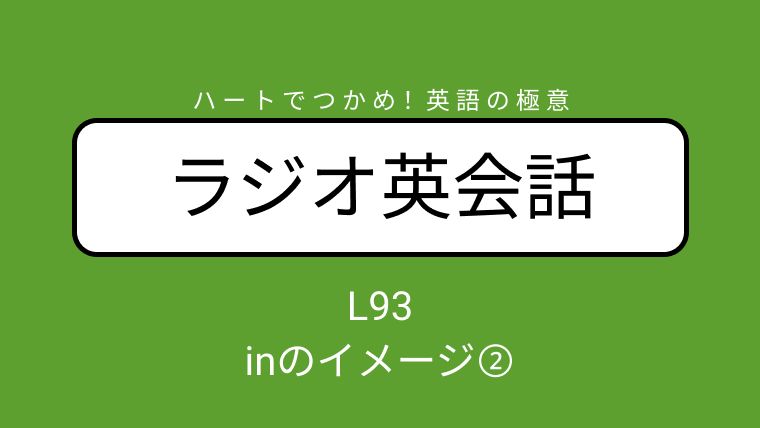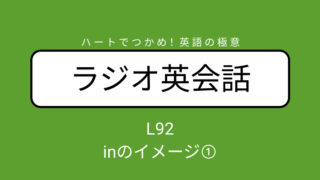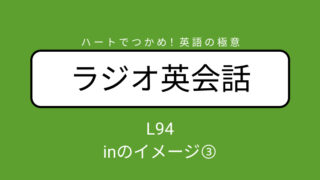NHKラジオ英会話のディクテーション「inのイメージ②」L93 2022/8/17

ディクテーション
講師陣の英会話を書きとり(スクリプト)
大西先生、クリスさん、ろーざさんの英会話部分を書きとってみましょう!(大西先生のギャグもできるだけ書きとります。)
Opening
Roza: 先生、今日は何の小説書いてるの?
Ohnishi: うーん、どっか行ったマーちゃんが帰ってきた話。
Chris: タイトルは?
Ohnishi: マーちゃん放浪記。
ラジオ英会話、ハートでつかめ英語の極意、講師の大西泰斗です。
Chris: Chris McVay here. I think we’d better start as soon as possible.
Roza: Hey everyone. Akino Roza here. I’ve gotten used to not understanding Ohnishi-Sensei’s openings.
Ohnishi: さぁそれでは、さっそく始めていきましょう。
ダイアログ和訳の後
今日はありませんでした。
Practice 9:55
Chris: OK, it’s practice time. So, we are continuing with the preposition in. Now, in does not only refer to a … an easy to imagine physical container. It’s also used for a more figurative type of container where you feel surrounded by something. So, with that in mind, let’s practice together.
Roza: And remember, think in English.
Chris: OK, here we go, “I put in too much salt last time.” Once more, “I put in too much salt last time.”
Roza: Here are some more short examples, “in my opinion”, “interested in math”, “speak in English”. I always tell you guys to think in English, right? Continuing on, “rich in culture”, “vary in size”.
Chris: OK, a few more, “apply in writing”, “You can write answers in pen or pencil.” “I’ve been looking forward to seeing you in person.”
Roza: And the last few, “Do you want to eat in?” “She’s never in when I phone her.” “Bright colors are in this year.”
Chris: Well done, guys.
Roza: Great job.
figurative type of container で「コンテナのような状態・環境」でいいと思います。
Ending
・・・・
Chris: But you’ll get a lot of vitamin C.
Ohnishi: Right. というわけで今日はこの辺で。
All: Bye.
~ ディクテーションした内容やその解釈などに、聞き間違いや認識違いがある可能性はあります。ご了承ください


